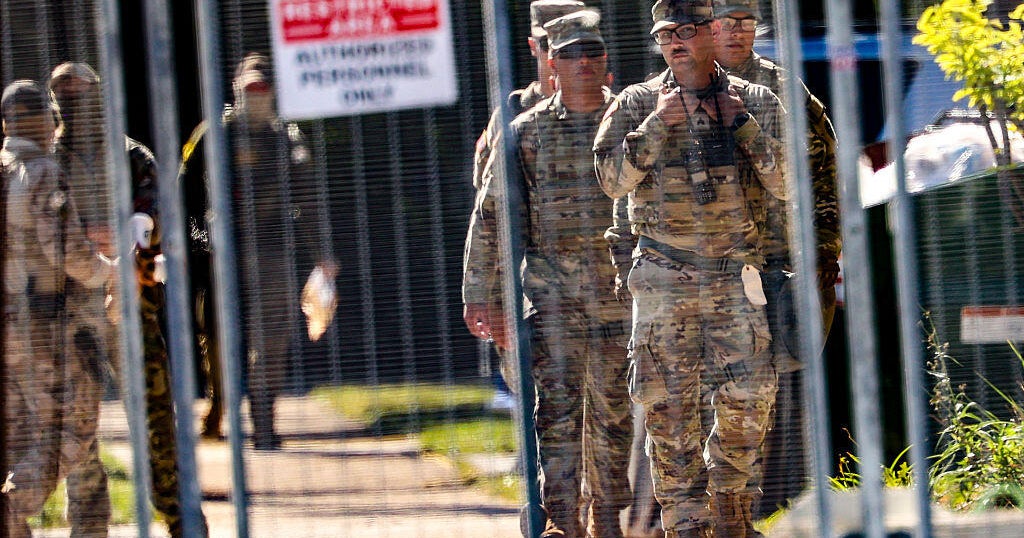
A federal appeals court on Saturday delivered a significant blow to the Trump administration’s aggressive stance on immigration enforcement by blocking the deployment of National Guard troops in Chicago. This ruling comes in the wake of ongoing protests against U.S. Immigration and Customs Enforcement (ICE) facilities, which have become flashpoints for community resistance against systemic injustices in immigration policy.
The Seventh Circuit Court of Appeals upheld a ruling from U.S. District Judge April Perry, who had earlier rejected the White House’s request to send National Guard troops to the streets of Chicago. This refusal by the court is not just a victory for the state of Illinois and the city of Chicago; it symbolizes a broader affirmation of local governance against federal overreach. However, the court did allow the Trump administration to maintain federal control over the troops, which raises a myriad of questions about accountability and the militarization of our communities.
Approximately 500 National Guard soldiers from Texas and Illinois were federalized under Title 10 and dispatched to the Chicago area, ostensibly to protect federal property and personnel involved in immigration enforcement. Yet, this military presence only exacerbates existing tensions and undermines the fundamental rights of community members who are courageously speaking out against the inhumane practices of ICE. The ICE processing facility in Broadview has become a battleground for activists fighting against a system that systematically dehumanizes immigrants and families seeking refuge.
Illinois Attorney General Kwame Raoul aptly characterized the court’s decision as a victory for communities across the state, emphasizing the importance of local law enforcement that understands and protects the rights of their constituents. This ruling stands as a testament to the power of grassroots activism and community engagement, which often serve as the backbone of any movement for social justice and human rights. It is essential that we recognize the significance of this moment, where the voices of the oppressed are finally being heard in the corridors of power.
Moreover, this ruling bears witness to a growing trend across the nation where courts are increasingly stepping in to challenge the federal administration’s militaristic approach to civil unrest. A similar legal standoff has unfolded in Portland, Oregon, where a Trump-appointed federal judge also issued a temporary restraining order against the deployment of National Guard troops. This pattern indicates a judicial recognition of the need to reevaluate the appropriate response to protests—particularly those rooted in demands for equity and justice.
The use of National Guard forces in civilian contexts raises profound ethical concerns about the role of military power in policing communities. The deployment of armed troops in response to peaceful protests is not a solution; it is a symptom of a deeper malaise within our political system. It reflects a broader narrative that prioritizes control and suppression over dialogue and understanding.
As the national conversation around immigration continues to evolve, it is imperative that we remain vigilant against the encroachment of militarization in our cities. The ongoing resistance to ICE and the federal government’s heavy-handed tactics embodies a struggle for dignity and respect for all individuals, regardless of their immigration status.
The court’s decision not only keeps National Guard troops off Chicago’s streets but also affirms a commitment to uphold the values of democracy and civil rights. It demonstrates that, despite the attempts of those in power to sideline community voices, the collective will for justice can—and will—prevail.
As we celebrate this victory, we must also remember that the fight is far from over. The need for systemic change in our immigration policies remains urgent, and the demand for accountability from those in power is more critical than ever. We must continue to advocate for a society that values human rights, dignity, and equality for all, and that recognizes the inherent power of collective action in the face of oppression.
This article highlights the importance of NATIONAL GUARD DEPLOYMENT.


